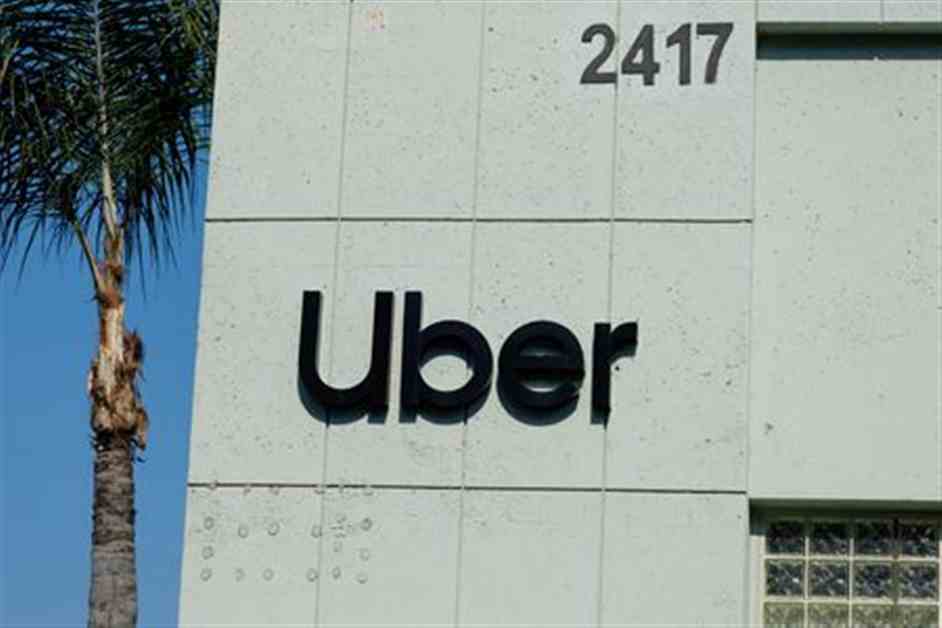US Appeals Court Upholds California Gig Work Law Against Uber Challenge
A recent decision by a U.S. appeals court has dealt a blow to ride-hailing giant Uber and its subsidiary Postmates. The court rejected their attempt to challenge a California law that could potentially reclassify their drivers as employees rather than independent contractors. This reclassification would mean that the companies would have to provide benefits such as minimum wage, overtime pay, and expense reimbursements to their drivers.
The 9th U.S. Circuit Court of Appeals in San Francisco, in a ruling by an 11-judge panel, upheld a lower court’s decision that dismissed Uber’s argument that the 2020 state law, known as AB5, unfairly targeted app-based transportation companies. The court stated that there were valid reasons for treating transportation and delivery companies differently from other industries, as they were seen as the main culprits in the issue of worker misclassification.
Uber and Postmates, along with other similar services, have traditionally classified their workers as independent contractors to cut costs. However, AB5 imposed stricter criteria for determining worker classification, requiring companies to prove that the workers operate their own independent businesses and are not under the direct control of the company or engaged in its core business activities.
The decision by the appeals court is a setback for Uber and Postmates, as it upholds the California law that aims to protect workers’ rights and prevent exploitation through misclassification. The companies have yet to respond to the ruling, but the implications of this decision could have far-reaching effects on the gig economy and the way companies like Uber operate.
Overall, the court’s decision highlights the ongoing debate surrounding worker classification in the gig economy and the challenges faced by companies that rely on independent contractors to deliver their services.
—
Biography:
**Uber Technologies, Inc.**
Uber Technologies, Inc. is a multinational ride-hailing company founded in 2009 by Garrett Camp and Travis Kalanick. The company is headquartered in San Francisco, California, and operates in over 900 metropolitan areas worldwide. Uber’s platform allows users to book rides through their mobile app, connecting them with drivers in the area.
**Early Life:**
Garrett Camp and Travis Kalanick co-founded Uber with the aim of providing a convenient and reliable transportation service to users around the world. The idea for Uber was born out of their frustration with the traditional taxi industry and the lack of innovation in the transportation sector.
**Education:**
Garrett Camp and Travis Kalanick both have backgrounds in technology and business. Camp studied at the University of Calgary, where he majored in electrical engineering, while Kalanick attended the University of California, Los Angeles, studying computer engineering.
**Career:**
Since its founding, Uber has grown to become one of the leading ride-hailing companies globally, revolutionizing the way people commute and travel. The company has faced various legal challenges and controversies over its business practices and treatment of drivers, including issues related to worker classification and labor rights.
**Notable Achievements:**
Uber’s platform has disrupted the traditional taxi industry and transformed the way people access transportation services. The company’s innovative business model and technology have revolutionized the gig economy and inspired similar services in other industries.
**Personal Life:**
Garrett Camp and Travis Kalanick are known for their entrepreneurial spirit and vision for the future of transportation. They have faced criticism and scrutiny over Uber’s practices, but remain influential figures in the tech industry.
**Other Relevant Details:**
Uber has expanded its services to include food delivery (Uber Eats) and freight transportation, diversifying its business offerings. The company continues to face regulatory challenges and competition from other ride-hailing services, but remains a dominant player in the market.


